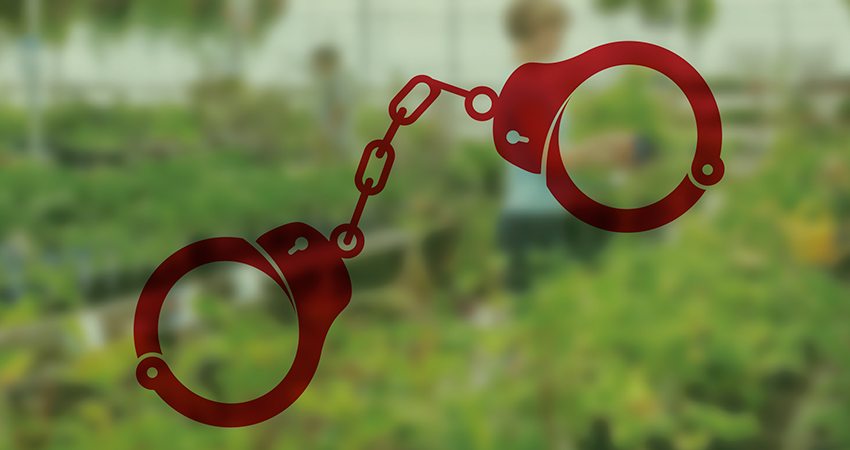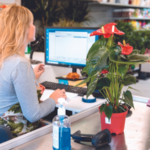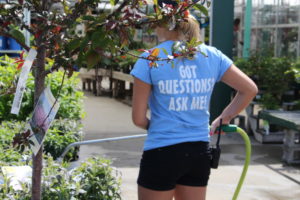
An Ounce of Prevention is Worth a Pound of Loss
It is a topic that is frustrating and causes a great deal of angst, but nevertheless it still exists and can affect your garden center’s bottom line. It is retail theft. The bottom-line impact on your business is an obvious consequence of this wrongdoing, however, there are other far reaching results that impact the communities in which we live.
Considering that nearly $13 billion of goods are stolen or shoplifted from retail stores annually, there are good reasons for business owners to take note and attempt to protect what is theirs.
Here are just a few of the results of theft on our communities:
• Consumers must pay higher prices to cover the store’s loss from theft.
• The inconvenience of a store’s security measures.
• Tax revenues lost because of goods not sold.
• The burden on law enforcement and the judicial system.
• The financial and emotional stress on the family of the perpetrator.
So how can retailers combat this ever-present problem in their businesses?
Taking Action
The actions taken must be on more than one front. The storeowner must implement continuous training for staff as well as take measures in the layout of the store, both indoors and outdoors, that will reduce shoplifting and theft.
1. Invite local law enforcement to audit your store: Law enforcement officials are experts in their field; they can tell just how someone would commit a crime. They are trained to be able to look at a particular site and deduce how a perpetrator may manipulate or take advantage of it. So call on them to help — that is what they are there for.
Allow them to walk the space, and let them tell you where they see potential areas that could fall prey to shoplifting. By doing so, you are being a proactive retailer and also forging an important relationship with those who are there to protect you.
Furthermore, allow them to talk to you about what happens when someone is caught shoplifting. Sometimes storeowners are hesitant to report theft because the process intimidates them or they’re afraid it’s not worth the trouble. Let law enforcement educate you and your employees, so it demystifies what happens if someone breaks the law in your store.
2. Improve visibility: Maximizing your ability to see your inventory is a great first step to preventing loss. Place shorter displays close to the register and taller displays near the perimeter of the store so all merchandise is completely visible from your perch.
Another great tool is the use of mirrors. These help eliminate potential blind spots. Get in the habit of training employees to straighten when they are not busy rather than standing at the cash register. This will enable your employees to become familiar with how much inventory is on the floor, and they will be able to recognize quickly if something is missing or out of place.
3. Give notice of your shoplifting policy: Decide what your policy will be with regard to shoplifting, and then place this written policy in conspicuous areas around your store. Also posting warnings such as “Shoplifters will be prosecuted to the fullest extent the law will allow,” will also give potential wrongdoers notice.
4. Implement security systems: First of all, have a security system (both inside and out). Whether it is mirrors, cameras, motion detectors or security personnel, make sure these are visible to your customers.
5. Lock up merchandise: Keeping certain goods locked up will deter loss. This may require an employee to assist with certain products that customers are interested in buying. That’s okay; this demonstrates to customers that you are being proactive and intentional about their service and your taking care of your inventory.
6. Strategically place cash registers: Make sure your register is located in an area of the highest visibility, and it is an area where customers are forced to walk past your employees. Also make sure that this area is not left unmanned.
7. Heighten your awareness: Employees should be trained to be aware of what is going on in the store at all times. Employees should be particularly alert during opening and closing hours and follow security procedures set out by management. These are not only there to protect merchandise but also the employees. Make sure you place items that a shoplifter would like to take (i.e., small items, popular items, or expensive items) in an area that employees can see them from any vantage point in the show space.
8. Be aware of suspicious behavior: There are certain behaviors that can be characteristic of a potential shoplifter. That is not to say that these behaviors are proof positive that someone is a shoplifter, however, these may be indicators.
Certain behaviors include but are not limited to appearing nervous, wandering aimlessly around the show space, leaving and returning repeatedly, loitering in areas that are hard for employees to monitor, and staring awkwardly at employees or other customers.
9. Have a bag-check policy: This is especially important if you have a gift shop area or clothing section in the garden center. Politely ask customers to check their bags with an employee before they go back to the dressing area.
10. Be present: That doesn’t mean that you as the owner have to be at the store 24/7. What this means is creating a culture where every customer is greeted and offered help throughout the shopping experience. This serves a few purposes: it reminds a potential perpetrator that you are watching them and aids in tracking inventory.
11. Be willing to press charges: Sadly, there is nothing that makes an impression as much as someone following through with punishment. It can be difficult, unpleasant, aggravating and sometimes downright sad, however, by giving the perpetrator a pass, you are allowing them to do the same thing again
to either you or someone else and allowing them to avoid the appropriate consequences. Everyone loses.
Eliminating shoplifting 100 percent is virtually impossible, however, by being proactive and intentional about these steps you can make great strides in making shoplifting and theft more difficult.

















 Videos
Videos





